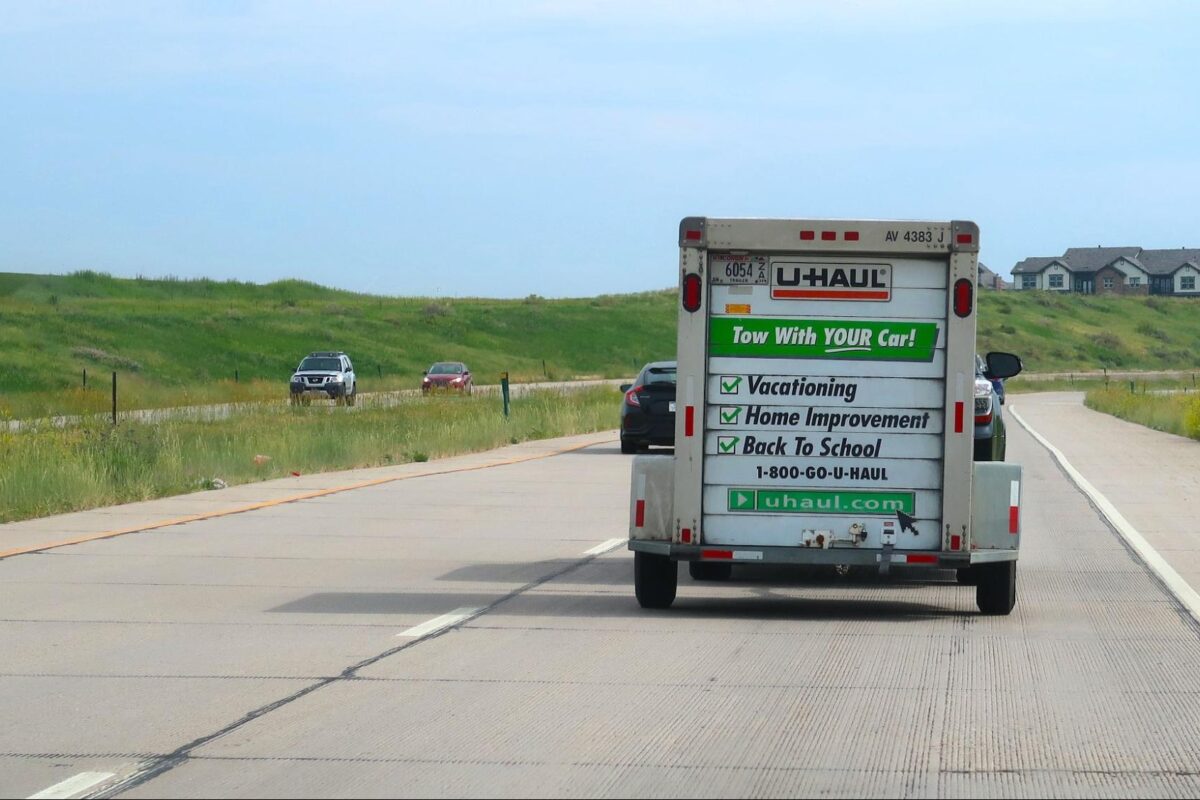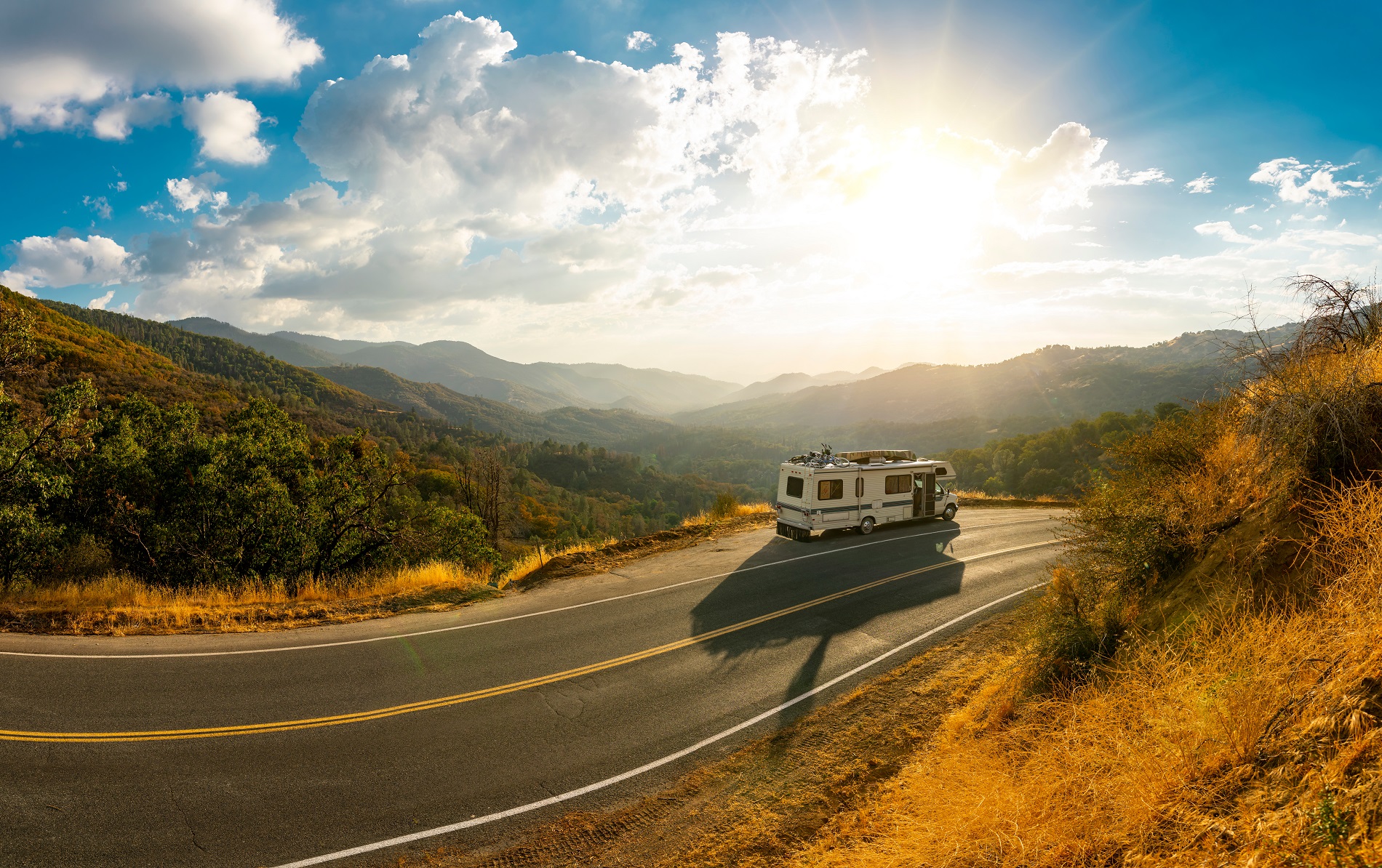
How to Move Cross-Country

Before the destination comes the journey—and moving can be quite a journey indeed. There’s a multitude of things you have to plan and prepare, hours or days worth of packing, and the physical and emotional exhaustion bundled up with the whole process. Although that stands no matter your particular destination, moving cross-country is an especially daunting prospect.
While there’s no magic spell to siphon away all the stress associated with a long-distance move, there are a few strategies to ease the burden. This guide will lay out some helpful long-distance moving tips, including:
- What you should pack for a long-distance move
- The pros and cons of moving yourself vs. hiring a professional moving company
- The logistics of driving cross-country
- How to make cross-country moving more affordable
- Additional considerations for long-distance moves
Let’s get started!
What you should pack for a long-distance move
Before deciding on what you will bring, it’s a good idea to consider what to avoid packing before traveling long-distance. The best approach naturally varies from person to person, but in general, devoting at least a day or two toward organizing and decluttering your home before packing can save time in the long run.
Plus, you could rake in some cash with a tag sale, check whether friends or family could use your unwanted furniture or items, or donate them to a charity of your choice. Some bigger charities like the Salvation Army will come with a truck and movers if you’re donating a large item or a large number of items.
Particular categories of items to think about as you’re packing before your long-distance move include:
- Perishables: Before you move, it might be high time to heat up leftovers and cook your frozen foods. Clearing expired medicine off the bathroom shelves and packing up the rest is also wise.
- Large appliances and furniture: Whether or not you’re moving into a fully furnished apartment, hauling your washer and dryer isn’t super practical, especially if you’re moving long distances.
- Dust collectors: From unworn clothes to unread books to that old VHS player you’ve been holding onto, there are bound to be things you haven’t touched in a while )or never touched at all).
As for what you should pack, listing things out and sticking to a schedule can help keep you organized and ensure everything safely reaches your new home. What’s going to be most helpful with your packing process, though, is preparing a box of necessities you’ll be able to access right away. Aside from a suitcase of clothes, here are a few day-one household items worth packing up together:
- Bedding and pillows
- Toiletries and prescription medicine
- Cleaning sprays and paper towels
- Disposable cups and plates
- Chargers and extension cords
Once the immediate essentials boxes are packed, set aside a separate box for valuables—everything from your grandmother’s necklace and other valuable items to birth certificates and other important documents. Keep both boxes close by, rather than in the back of a rental truck.
Remember that you’re going the distance, so don’t underestimate clothing, bubble wrap, and packing paper to lessen the impact of bumps in the roads ahead. Label boxes with fragile items inside with “handle with care,” and make sure not to put them under heavier boxes. Simple packing tips like these go a long way in the long drive ahead.
Additionally, it’s worth looking over your current pieces of furniture to see which ones should make the trip. If you have a brand-new couch you can’t bear to part with, you may want to find a way to transport it among your other furniture. However, if you’re still holding onto the raggedy couch you bought off Craigslist right after college, it may be time to ditch it and buy new furniture once you’ve arrived in town. Moving is a great opportunity to get rid of unwanted items!
The pros and cons of moving yourself vs. hiring a company
If you’ve ever shoveled snow on your own, you know what a hassle it can be. Sometimes, you’d rather pay some neighborhood kids to take care of it instead. Deciding between moving yourself or hiring full-service movers is much the same, only on a larger scale (even larger for long-distance moves).
Pros of moving yourself
Here are a few pros of moving your items yourself:
- Be alone together: Call friends and family to help out and treat them to dinner after a hard day’s work. Even better, if they live where you’re moving, have them visit you first, then road trip to your new place.
- Save money: By far the cheapest way to move, you’ll of course have to pay for gas and food on the cross-country move and will likely rent out a truck or trailer for your belongings. Any way you slice it, though, hiring a mover will cost more than DIY moving-related expenses.
- More control: You get to choose when and how you do everything. That can be intimidating, but also freeing.
Cons of moving yourself
However, if carrying heavy pieces of furniture and making a cross-country move in a truck you don’t even know how to back up sounds daunting, you may want to consider a few of the cons of moving long-distance yourself when making your final decision:
- Beast of burden: All the logistics are on you, from how you’re going to stack boxes to where you’re going to stop along the way. It can tire you out, yet once you arrive, there’s still more to be done.
- Learning to drive: Being behind the wheel is a different experience with a trailer hitched out back—or when you’re driving a truck, especially on busy highways. As such, you’ll have to learn as you go.
- Unexpected fees: Things like interstate tolls, moving insurance, and one-way dropoff fees can add up under the radar. Moving companies still usually cost more, but thinking about your budget ahead moving long-distance is not ill-advised.
Pros of hiring movers
Moving companies can be expensive. However, it also comes with a slew of advantages, especially for long-distance moves:
- Sit back and relax: When you hire a moving company, you don’t have to lift a finger! Movers are professionals who will not only pick things up and put them down, but pack boxes efficiently and handle delicate items with the utmost care.
- Additional services: Movers can do much more than their title implies, including cleaning and recycling, providing packing materials, disassembling and reassembling furniture, and even providing temporary storage or moving containers.
- Handling other things: Just knowing that movers are coming to lift, pack, and move your stuff can allow you to focus on other aspects of the trip—such as booking hotel reservations or making any final arrangements for your new home.
Cons of hiring movers
While a moving service can certainly take the weight of a move off your shoulders, there are a few drawbacks when working with a moving company for a cross-country move:
- Money, money, money: Your cross-country move will vary based on distance and the weight of your belongings, but on average, you’re looking at somewhere between $2,000 and $10,000. You’ll also want to tip your movers nicely for their hard work.
- The real deal: Not all moving companies are equal. It’s up to you to do the research, but talk is cheap. Don’t be afraid to ask around or speak with potential movers.
- Separation anxiety: It’s easy to worry about your things when you’re not the one lugging them cross-country. Ideally, you hired trustworthy professionals who can get all your furniture and belongings to your new home in one piece, but accidents happen, and full coverage means more money.
The logistics of driving cross-country
Let’s say you’re moving from Richmond, Virginia to Sacramento, California—cities almost straight across the country from one another. There are multiple routes you could take, but you’re looking to drive around 2,800 miles. In other words, you’re looking to spend 41 hours on the road.
On paper, those are just numbers. On moving day, however, they mean a lot more.
Add on traffic, tolls, and pit stops, and you can see how cross-country travel needs careful planning. Here are some tips to keep in mind when driving across the country to your new home:
Gas
Knowing where you’re going to fill up beforehand can bring peace of mind on those long stretches of open road the U.S. Heartland is known for. There are numerous gas cost calculators online, but it’s important to remember that prices change depending on what part of the country you’re in, and that the extra weight of your belongings, a hitched trailer, or a truck changes the game.
Food
Every part of the country has its specialties, and every city has its own spin on regional favorites. Spend some time researching eateries, and you’ll get to experience it all yourself. Of course, sometimes, you might just want to visit a drive-thru or pick up snacks. You could always scrimp by packing away the last of your pantry for the trip, so long as the food will last. Some good choices to pack in the car while you’re driving across the country include:
- Granola bars
- Cereal
- Sandwiches
- Pretzels and chips
- Dried fruit
Rest
Driving for several days straight across the country isn’t the best idea, so be sure to map out places to spend the night in advance. If you’re towing a trailer or driving a truck, call ahead to inquire about parking.
Miscellaneous
You may have to make additional pit stops, but don’t underestimate the importance of staying hydrated throughout the trip. Indeed, water, a first aid kit, and season-appropriate clothes will make a huge difference. Having cash on hand won’t hurt either, as you may come across cash-only tolls.
Also, if you have the time, the compulsion, and some extra room in your budget, why not make a few recreational stops? There are loads to see and do in every state, from visiting monuments to trekking mountain trails. Breaking up the monotony of foot-on-gas can also help keep you alert later on.
While you drive, throwing on a few playlists or an audiobook can also help keep your mind engaged.
How to make cross-country moving more affordable
A move across the country isn’t going to be cheap, but there are a few tips for long-distance moving that’ll keep your wallet happy:
- Ship it: Those without much to bring should consider shipping their belongings. Purchased early, a plane ticket could be significantly less than road trip expenses, especially if you need a van or truck rental to haul your items.
- Use free boxes: Stores often get rid of boxes and milk crates. If they’re in good condition, then by all means, take them. You also won’t feel like you’re throwing money away when it comes time to unpack and toss those boxes into the recycling bin.
- Compare movers: When researching for a reliable mover, you’re likely to find a range of prices, so keep your budget in mind. Some movers even offer discounts on your moving cost, but be sure they have all the services you’re looking for.
- Find the right time: If using movers, avoid summer if you can, as that’s when they charge the most. You’ll also save the most on a mid-month or weekday move.
More than anything, plan ahead. Building on everything from earlier, run a tag sale, see if friends and family can help in any way, choose definite gas and rest stops, bring whatever food you can, and solidify a budget. The more you account for in advance, the more money you save on moving expenses.
Additional tips and considerations
There are a few more things to know about how to move across the country, including:
Job relocation packages
Work is one of the most common reasons people move, and certain companies take that into account by offering job relocation packages. Simply put, your new job might help pay for or reimburse the moving process. And since you’ll likely be able to negotiate how much they help, you could end up saving a pretty penny. However, keep in mind that your position may affect the final outcome. Such packages might include:
- Airfare
- Moving company services
- Storage
- Car rentals
Updating your address
It might be the last thing on your mind when there’s so much unpacking to do, but don’t forget that a new place means you have a new address, which means you’ll have to update some things. You should be able to take care of most of it beforehand, but the post office, utilities and service providers, your doctor, tax agencies, and the DMV are the big ones to consider.
Getting familiar with your new city
If your budget allows, a pre-move trip to your new city isn’t a bad idea. Get to know the landscape, the hotspots, the local delicacies—everything you can. If someone you know lives in the area, then you can even cut hotel costs out of your visit or cut all costs by going virtual.
Landing: Comfort no matter where you go
Whether you’re moving from New York to San Francisco or Los Angeles to Boston, you’ve got a long trip ahead. Luckily, when you join Landing’s network, you can leave the hassle behind—literally.
Our membership-based network of flexible-lease apartments come fully furnished, so you won’t need to worry about moving hefty furniture across the country—just bring your clothes and whatever else you need to make your new spot feel like home.
Interested in living with Landing but want some help covering the costs of moving cross-country? For a limited time, we are offering up to $2,500 to help you start living with Landing. All you have to do is tell us about your expected moving costs, book a flexible stay with us, and provide receipts from your move, and a credit will be applied to your account over the next 12 months.
Click here to save money on your cross-country move.









